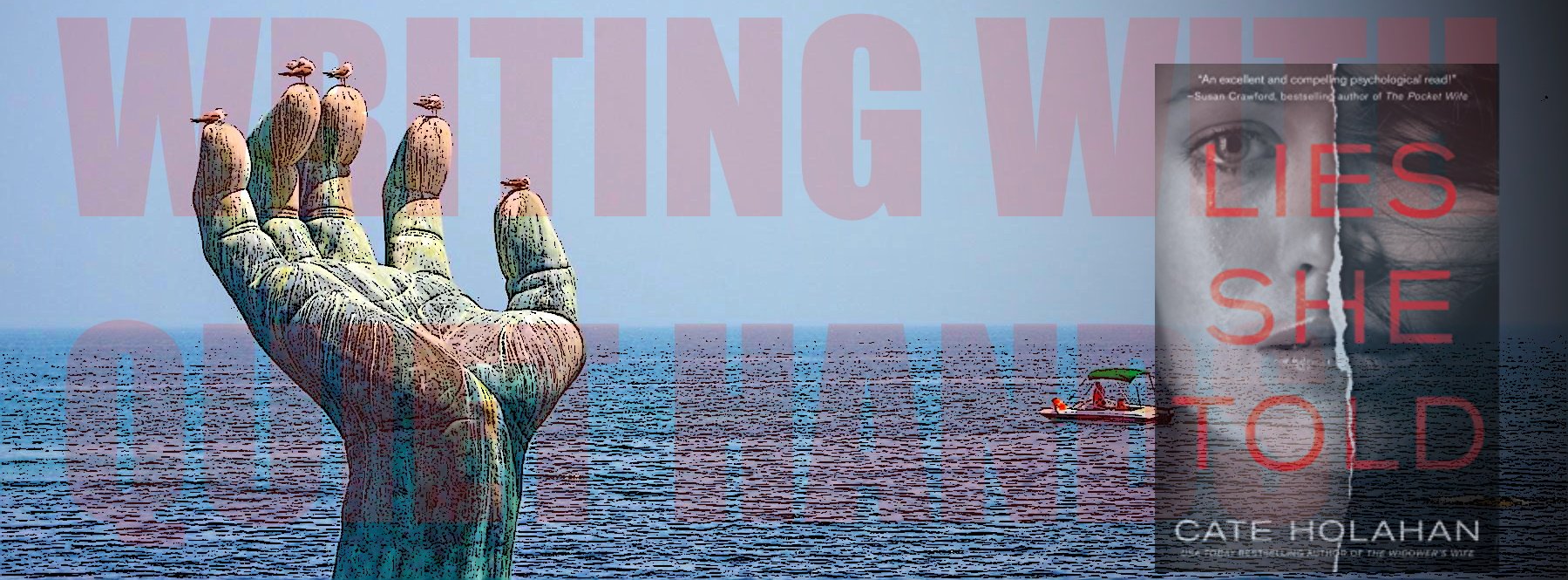Writing With Quiet Hands
 All manner of craft, market, and valuable agent tips from someone who has done it all: Paula Munier. We couldn't be happier she's chosen Algonkian Author Connect as a base from where she can share her experience and wisdom. We're also hoping for more doggie pics!
All manner of craft, market, and valuable agent tips from someone who has done it all: Paula Munier. We couldn't be happier she's chosen Algonkian Author Connect as a base from where she can share her experience and wisdom. We're also hoping for more doggie pics!
9 topics in this forum
-
- 0 replies
- 519 views
When it comes to plotting, the conventional wisdom is to play the “What If?” game. As in: What if this were to happen, or this, or this? But that only works when you can come up with those What If? scenarios. When your “What If?” well has run dry, try one of these plot hacks: Movie Night This is a fun one. Watch three films based on bestselling novels in your genre. While you watch, write down what happens in every scene. That is, the beats of the story. As in Jaws: Young people having fun on the beach; young woman runs into the ocean; young woman is caught and dragged to her death screaming, etc. Do this three times for three movies, and you should soon be…
 Last reply by Paula Munier,
Last reply by Paula Munier, -
- 1 reply
- 556 views
Selling stories is not much different than selling anything else. As a writer turned acquisitions editor and now literary agent, I learned that the hard way. It’s not enough to write a great story; to sell that story you have to be able to milk its selling points and eliminate the obstacles to selling it. WHAT ARE YOUR SELLING POINTS? Here are some of the selling points that might/should apply to your story. USP USP stands for Unique Selling Proposition. That is, what makes your story unique. As in these X Meets Y loglines: Castaway on Mars = USP for Andy Weir’s The Martian Eleanor Oliphant Is Completely Fine meets Columbo = USP for N…
 Last reply by EditorAdmin,
Last reply by EditorAdmin, -
- 1 reply
- 700 views
INTERVIEW WITH LEGENDARY AGENT AND BEST SELLING AUTHOR, PAULA MUNIER.
 Last reply by Admin_99,
Last reply by Admin_99, -
- 1 reply
- 782 views
Here’s what not to say. (And yes, these are real lines from real-life pitches.) #1 My villain is so bad he kills the dog. It’s almost impossible to sell a book in which a dog (cat, horse, etc.) is killed. I’m just saying. #2a My hero dies in the end. Readers want your hero to survive his trials and tribulations, overcome the obstacles you put in his way, and become a better version of himself. #2b My heroine dies in the end. It’s a series. No, someone else can’t take her place in Book 2. If you’ve done your job right, readers have fallen in love with your heroine. They want her back in Book 2. #3 I can’t find any comparabl…
 Last reply by Admin_99,
Last reply by Admin_99, -
- 1 reply
- 590 views
Point of view issues keep more otherwise sellable authors from selling their work than nearly any other problem. That’s why as an agent, author, and writing teacher, I always caution my clients, fellow writers, and students to play it safe when it comes to POV. And yet every once in a while I come across a story whose author threw caution to the wind so splendidly I am tempted to play around with point of view myself. If you find yourself so inclined, read on. FIRST, THE RULES As Picasso reminded us, “Learn the rules like a pro, so you can break them like an artist.” Here are the POV rules you need to observe long enough to master them before you break the…
 Last reply by Admin_99,
Last reply by Admin_99, -
- 1 reply
- 484 views
Everyone always talks about how hard it is to write. And it is hard. There’s the terror of the blank page, the three steps forward, two steps back torture of plotting, the trial and error of character development—not to mention the tyranny of the impossible deadline. And it never really gets easier, as we tend to challenge ourselves more with every project. For me, the worst part is the first draft, which is always somewhat of a slog. I love it and dread it at the same time. It’s like running a marathon when you’ve forgotten how to run. But you haven’t really, you just keep putting one foot in front of the other. Bird by bird. When I remember this, the writ…
 Last reply by Admin_99,
Last reply by Admin_99, -
- 1 reply
- 498 views
We are a people in search of a hero, always. And readers are a people in search of a heroine, always. One of the biggest problems I see in manuscripts—confirmed by editors when they pass on projects—is the protagonist. Your protagonist should be compelling and courageous. Heroes are, by definition, heroic. Your heroine should push herself to be braver than she thinks she can be, braver than readers think she can be, braver than you think she can be. There are all kinds of courage. Here are some thoughts on heroes, heroines, and the nature of heroism from authors who’ve given us some of the most memorable protagonists…. ____________________________________…
 Last reply by Admin_99,
Last reply by Admin_99, -
- 4 replies
- 3.3k views
Handing your writing over for feedback always sounds good in theory, but when it comes right down to it, it takes courage and confidence to hear others criticize our stories without complaint, even when the comments are helpful and constructive and kindly given. Even we know they’re right. Maybe especially when we know they’re right. That said, learning to take the good feedback, leave the bad, and get on with the hard work of revision is crucial to becoming a career author. Whether you’re reading your story aloud at Bread Loaf or exchanging notes with your best writing buddy, you need to develop a skin thick enough to deflect the slings and arrows of harsh assessmen…
 Last reply by Tricia Martin,
Last reply by Tricia Martin, -
- 0 replies
- 461 views
Ruminations provoked by the NY Write to Pitch 2022. I recently led a workshop at the New York Write to Pitch Conference, an event dedicated to helping writers perfect their pitches as well as discover what factors in their novels might prevent their work from becoming published in an increasingly unforgiving marketplace. Often it’s the fact that there’s nothing unique enough about the novel itself to persuade agents and editors and ultimately publishers to take a chance and champion the work. In a publishing landscape that’s more difficult than ever, thanks to the pandemic and other factors affecting retail businesses right now, it’s more important than…
 Last reply by Paula Munier,
Last reply by Paula Munier,









